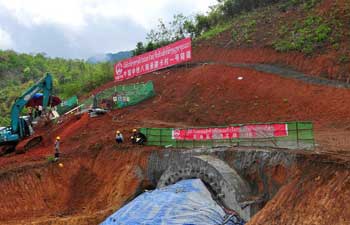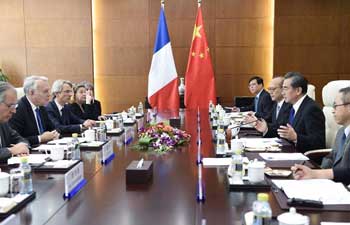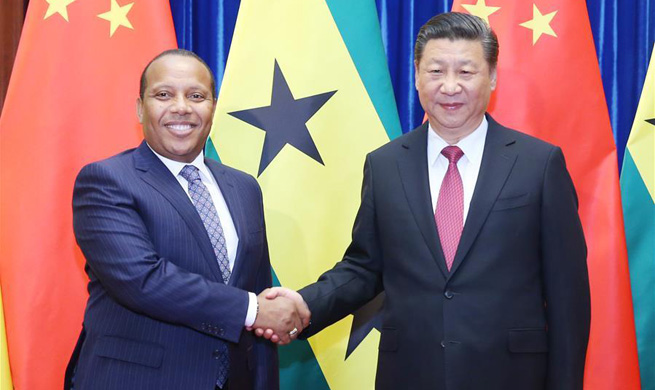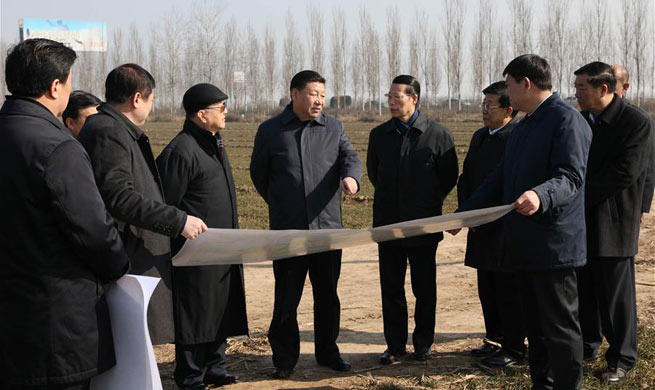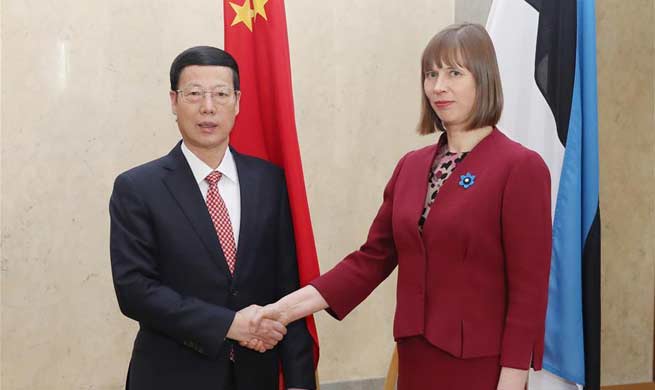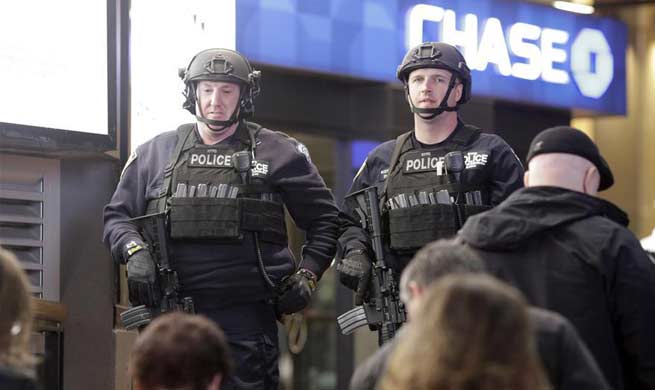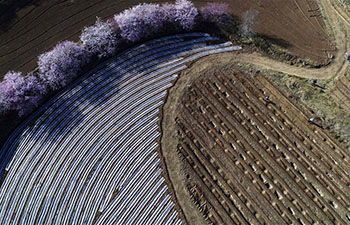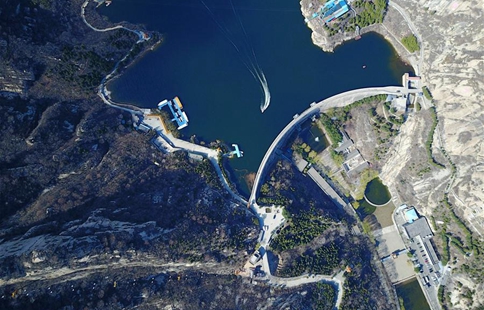by Xinhua writer Zhu Junqing
BEIJING, April 15 (Xinhua) -- Tensions are mounting melodramatically recently in and around the Korean Peninsula over Washington's threat to attack Pyongyang for its nuclear and missile tests.
Though a full-blown military confrontation is not likely in the near future, the atmosphere for a peaceful settlement for East Asia's high-profile nuclear stalemate has alarmingly rarefied.
Washington has been posturing to prove that it is not bluffing when it warned the Democratic People's Republic of Korea (DPRK) that all options, including military ones, are "on the table."
It has declared an end to the so-called "strategic patience" exercised in the Obama years on Pyongyang's nuclear program, and has quickened the steps to install THAAD (Terminal High Altitude Area Defense), an anti-missile system, in South Korea despite the decision being strongly denounced by Beijing and Moscow.
Most recently, the U.S. government has, as what President Donald Trump told Fox in an interview, sent a "powerful" "armada" to the waters near the Korean Peninsula, an apparent show of force at the DPRK's doorstep.
The Trump administration's firing of dozens of Tomahawk missiles against military targets in Syria last week has also been taken as a message to Pyongyang that it is willing to use force.
The DPRK, which is celebrating the 105th anniversary of the birth of its founder Kim II Sung on Saturday, has warned back.
A DPRK foreign ministry spokesman said Thursday that the country would retaliate with "nuclear thunder and punishment lightning" on hostile forces, and give them a "taste of real war."
In recent months, Pyongyang has test-fired ballistic missiles for a number of times. It has also conducted a ground test of a high-thrust rocket engine in March. Speculations are running high that the DPRK is heading for its sixth nuclear test since 2006.
Were the underground nuclear test to be conducted, situation in the peninsula could be further inflamed and the hope of using diplomacy to defuse one of the world's most combustible issues could be further eroded, if not terminated. Pyongyang needs to think twice before it acts.
For Washington, a pre-emptive action would hardly guarantee a complete eradication of all of the DPRK's nuclear capabilities. Futhermore, it would trigger a deadly retaliation from Pyongyang, which could be a prelude to a full-scale war in the area.
A grand bargain between the two sides is very much needed as the region is at a critical moment in history. The first stroke would be filling up the trust gap.
To do that, Washington is advised to suspend its military threat and reassure Pyongyang that it is willing to talk, and to prove with concrete actions that it is like what U.S. Secretary of State Rex Tillerson said in Russia a few days ago that America is indeed "not interested in regime change" in the DPRK.
Pyongyang should also take a step back, and halt immediately all of its nuclear activities as well as missile tests to allow room for diplomatic maneuvering.
Without doubt, to de-nuclearize the peninsula, all sides concerned have no choice but to make their share of concessions. Yet compared to the price of war, it is never too expensive to compromise for peace.





